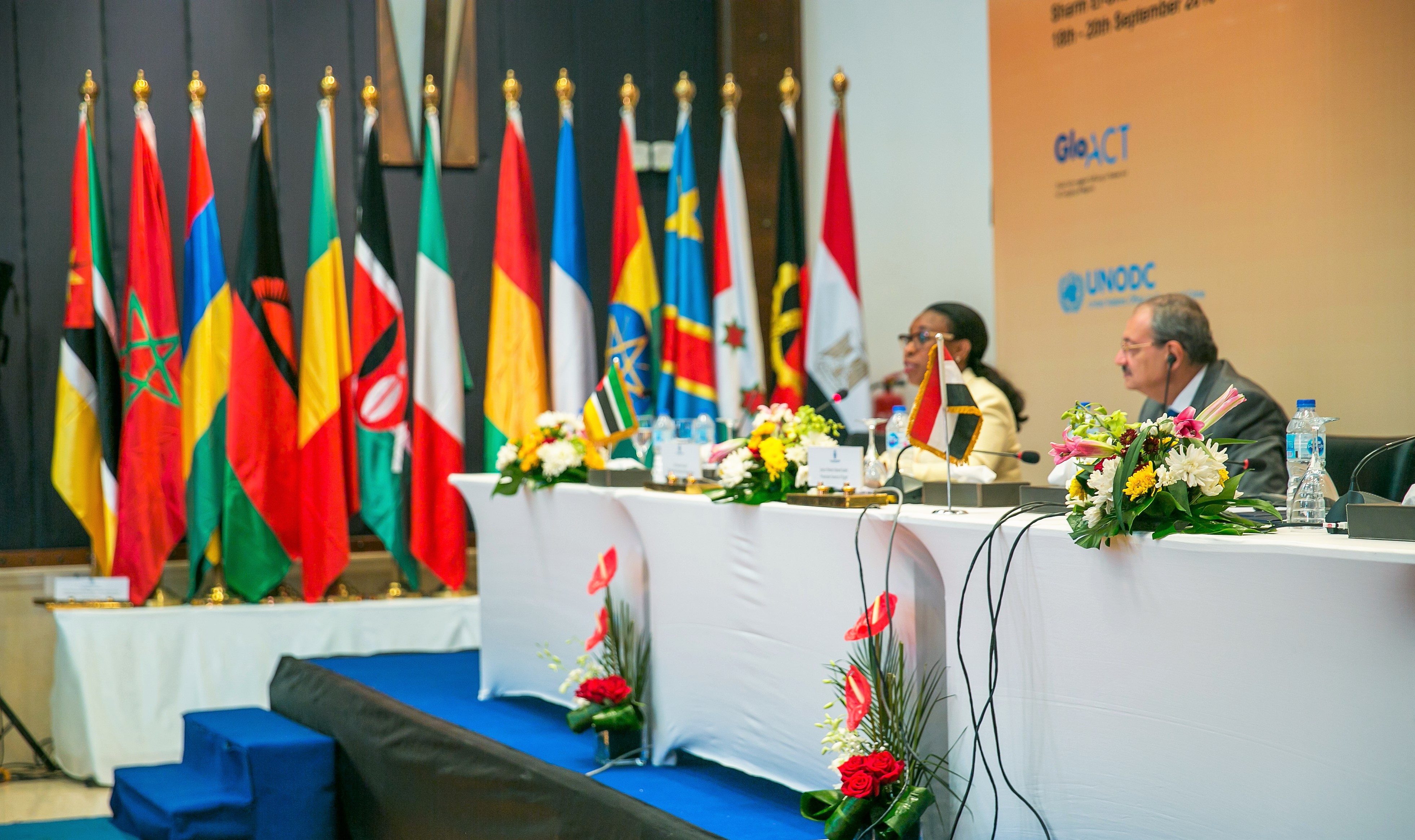Sharm El-Sheikh - 27 September 2018 - Dismantling smuggling networks in countries along the Mediterranean routes and protecting migrants requires close collaboration between countries of origin, transit and destination. To strengthen dialogue and foster judicial cooperation was the aim of the first " Africa-Europe Conference on International Judicial Cooperation in Investigation and Prosecution of Human Trafficking and Migrant Smuggling" held from 18 to 20 September 2018 in Sharm El Sheikh, Egypt.
 "Together, countries in Africa and Europe can and must do more to facilitate the exchange of information, ensure confiscation of the proceeds of the crime, enable the extradition of the criminals involved, and ensure the safe return and the restitution of rights of trafficked victims and smuggled migrants in accordance with international frameworks", said Ms Cristina Albertin, UNODC Regional Representative for the Middle East and North Africa.
"Together, countries in Africa and Europe can and must do more to facilitate the exchange of information, ensure confiscation of the proceeds of the crime, enable the extradition of the criminals involved, and ensure the safe return and the restitution of rights of trafficked victims and smuggled migrants in accordance with international frameworks", said Ms Cristina Albertin, UNODC Regional Representative for the Middle East and North Africa.
The Conference was organized by UNODC and its Regional Office for the Middle East and North Africa, in cooperation with the Prosecutor General's Office in Egypt and the National Coordinating Committee for combating and preventing illegal Migration and Trafficking in Persons (NCCPIM& TIP).
It convened prosecutors from North Africa, Sub-Saharan Africa and Europe. Delegations from Angola, Burundi, Democratic Republic of Congo (DRC), Egypt, Ethiopia, France, Guinea, Italy, Kenya, Malawi, Mali, Mauritius, Morocco, Mozambique, Namibia, Nigeria, Niger, Rwanda, South Africa, Spain Sudan, Tanzania, Tunisia, Uganda and Zambia participated in the event.
Additionally, international and regional organizations working on trafficking in persons and smuggling of migrants contributed to the deliberations, such as the African Prosecutors' Association, the African Union, the European Union, the International Organization for Migration and UNICEF.
Delegations presented developments in regional and international cooperation regarding the investigation and prosecution of human trafficking and smuggling of migrants, including challenges and best practices.
Participants discussed international cooperation mechanisms, including requests for confiscation of proceeds of crimes, extradition, mutual legal assistance and the possibility to realize joint investigations to dismantle transnational organized crime networks.
The analysis of the financial transactions with payments originating in multiple countries, including some located in Europe and North America, underlined the need to engage with the Financial Intelligence Units (FIUs) and Anti-Money Laundering Units in the concerned countries to track these transactions and effectively respond to these crimes.

The event was held within the framework of the UN Convention against Transnational Organized Crime and its two supplementary protocols on trafficking in persons and smuggling of migrants. UNODC presented the Office's work in this field, such as the findings of the recently published "Global Report on Smuggling of Migrants"; the Global Action to Prevent and Address Trafficking in Persons and Smuggling of Migrants (GLO.ACT); and judicial cooperation networks supported by UNODC, such as WACAP.
The Conference adopted the Sharm el Sheikh Declaration, through which participating countries pledged to enhance efforts for international cooperation in transnational organized crimes, in particular trafficking in persons and smuggling of migrants, but also related crimes such as money-laundering. The Conference was held with support of GLO.ACT, the European Union and the Government of Italy.
The Global Action to Prevent and Address Trafficking in Persons and the Smuggling of Migrants (GLO.ACT) is a four-year (2015-2019), €11 million joint initiative by the European Union (EU) and the United Nations Office on Drugs and Crime (UNODC). The project is being implemented in partnership with the International Organization for Migration (IOM) and the United Nations Children's Fund (UNICEF). GLO.ACT aims to provide assistance to governmental authorities and civil society organizations across 13 strategically selected countries: Belarus, Brazil, Colombia, Egypt, Kyrgyz Republic, Lao PDR, Mali, Morocco, Nepal, Niger, Pakistan, South Africa, Ukraine. GLO.ACT works with the 13 countries to plan and implement strategic national counter-trafficking and counter smuggling efforts through a prevention, protection, prosecution, and partnerships approach. It supports the development of more effective responses to trafficking and smuggling, including providing assistance to victims of trafficking and vulnerable migrants through the strengthening of identification, referral, and direct support mechanisms.
For more information, please contact:
Mr. Faisal Hegazy
GLO.ACT National Programme Officer
faisal.hegazy@unodc.org
www.unodc.org/unodc/en/human-trafficking/glo-act/
Email: glo.act@un.org
Twitter: @glo_act